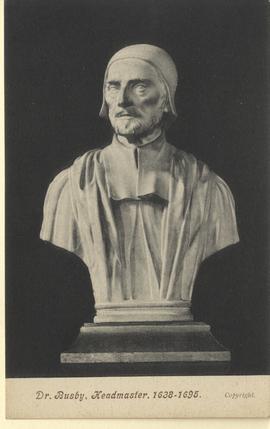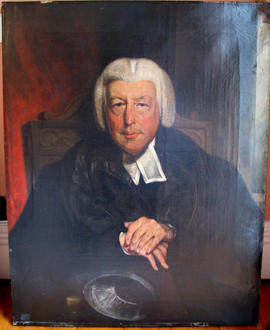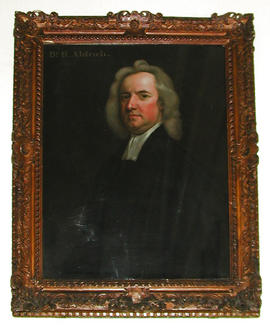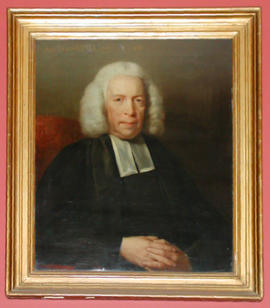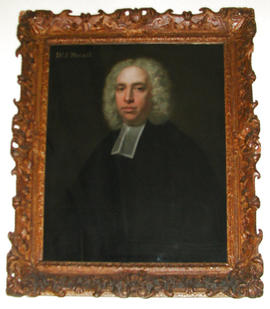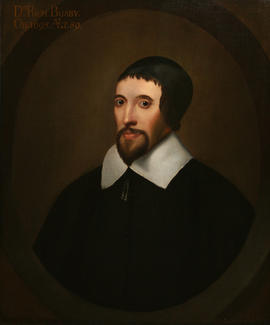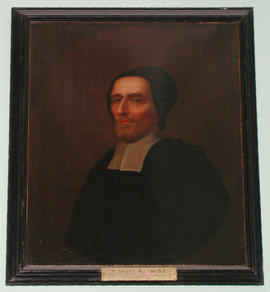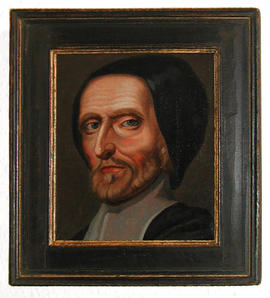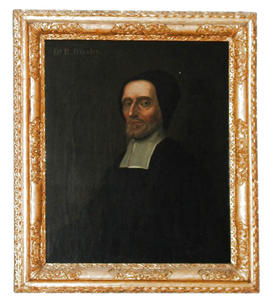Had a prep school friend who went to Westminster School and visited him there. He remembers the King’s Scholars and their splendid costumes. [1:20] He was asked to rebind the Abbey library in 1983. Charles Low became aware of him and asked him to start bookbinding at Westminster. He had just retired from classes, then started bookbinding classes a day or two later. [4:45] The amount of pressure on pupils, who are working with their minds all the time. Important for them to have a break and work with their hands. [9:55] Bookbinding saved several people from nervous breakdowns. [11:02] More competition to get into Oxbridge than there used to be. [13:24] The bookbinding exhibition gets better each year. [15:59] Hasn’t had time to make a binding of his own in years. Description of inlay onlay bookbinding technique. [17:33] Doesn’t have a favourite binding by a pupil. They’re all different and good in their own way. Not keen on the idea of prizes. [19:29] Benefits for teachers doing bookbinding. A break from academic work. [23:11] Description of a flood from a tap left on in a top floor flat. His tools covered in rust when he returned from the summer holidays. [24:09] The new bookbinding room. Severely claustrophobic from his time in the Navy. Hasn’t been on the Tube since the war. Was once trapped in a lift and hasn’t been in one since. [26:36] An unhappy childhood. [26:47] Started teaching at 17. Went to Oxford later. There were more people than usual at Oxford, back from the war. He studied history, the only proper subject, which embraces everything else. [29:08] Start of the Cold War in 1947. Crisis in Berlin. Felt that he could have been called back into the armed services at any moment. [31:56] Diploma in Education. [33:23] Went to Abbotsholme School, a pioneer for progressive schools. Forestry, farming, music and crafts were all part of the timetable. [34:21] Seeing a bookbinding class for the first time. Had never thought about bookbinding before. [35:21] Started running bookbinding classes at Abbotsholme. [37:50] Worked at the Public Records Office Conservation Department. Very good experience. Lecturing at Camberwell for the professional course on archives and records. Local Authority had funding cuts and sold Camberwell. [39:55] Recommended to the Abbey Library and came to Westminster. [41:38] Maundy money, a reward for good work, given by the Queen in the Abbey. [44:22] Writing poetry. Wants to continue with bookbinding. [44:45] Wants happiness for his pupils. [47:47] Has been vegetarian for 70 years and is still very fit. Became vegetarian during the war, surrounded by slaughter. He decided he could stop some slaughter. [49:06] Not a vegan, although this is the logical thing to be. Veganism can be a bit of a nuisance to other people. [50:01] Used to have many colds every year. After two year of being vegetarian, he hasn’t had a cold since. [51:10] Much easier to be a vegetarian now. Before, there was no provision made in restaurants. [51:40] At Oxford there was only one other vegetarian in his college. They were given things on toast. [51:10] Nelson, his favourite historical figure. He doesn’t understand digital things. [53:41] Misses his analogue camera. Doesn’t have a computer. [54:30] Least favourite historical figure is Elizabeth I. Dismissed the Navy without pay as soon as it defeated the Armada, leaving sailors starving in Plymouth. Dismissed the militia without pay too. Description of the discovery of Philip II’s private diary. [1:00:01] Criticisms of the statue of Elizabeth I. [1:00:52] Enjoys some Dickens. Liked reading The Cruel Sea, which reflects his experience of convoys during the war. From Londonderry to Gibraltar in 1943. Port Said and the Suez Canal. [1:05:50] Enjoyable experience of South Africa. Likes the accent even now. [1:06:53] Mentions different pupils. [1:08:12] The idea of perfect happiness is having the right people around you, marrying the right person and having nice children. His marriage was a mistake for both of them. Their son died before he was born and they then drifted apart. He’s been on his own for 45 years. Being at the school is his idea of perfect happiness. [1:09:57] He believe in the next world and will communicate with people he’s left if he can.

